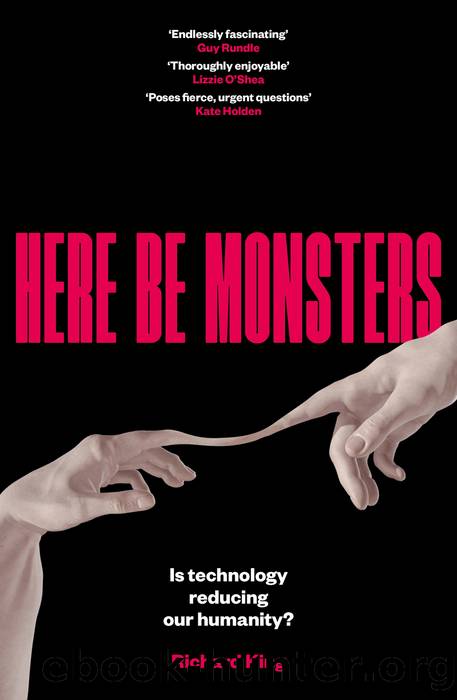Here be Monsters by Richard King

Author:Richard King [King, Richard]
Language: eng
Format: epub
Publisher: Monash University Publishing
Published: 2023-04-29T00:00:00+00:00
A pro-eugenics poster from the 1930s
Meanwhile, the notion that social arrangements have a basis in biology continues to command intellectual respectability via evolutionary psychology, which attempts to understand the human mind in terms of evolutionary processes. Hugely popular in the 1990s, this patchy discipline proved influential on some libertarian commentators called on to explain why market mechanisms havenât led to more social mobility. One common move was to claim that those on the bottom of the social pile have lower than average intelligence, and that those at the top are there because of their intellectual prowess. This was the argument Richard Herrnstein and Charles Murray made in their controversial book The Bell Curve (1994), which argued that the inferior socioeconomic position of black Americans could be partly explained by a finding that their scores on IQ tests were a fairly steady 15 points below the average non-black test-taker. (Since the authors claimed that intelligence was around 60 per cent heritable, this finding led many readers to conclude that a genetic element was at work in that differential â a conclusion not explicitly drawn by the authors but consistent with their overall argument, and with the political âtoneâ of their supporters.) Even today, such ideas influence both conservative and libertarian thinkers. The psychologist Jordan Peterson, for example â for a time the darling of the alt-right trolls â derives a defence of social hierarchies from a comparison of human beings and lobsters. For Peterson, the fact that serotonin increases in a lobsterâs brain the higher up the social hierarchy it climbs is evidence that we, too, are hardwired to seek power and influence. As he puts it in 12 Rules for Life (2018), his foray into the self-help genre: âItâs winner-take-all in the lobster world, just as it is in human societies, where the top 1 percent have as much loot as the bottom 50 percent â and where the richest eighty-five people have as much as the bottom three and a half billion.â19
Not all evolutionary psychology is as dumb as this. But much of it seems to be based on a fallacy, in that it takes the insight that human beings possess certain natural capacities (which manifest as particular traits) and extrapolates that all human traits must have a genetic cause. These thinkers will tend to look at, say, the human habit of worshipping gods, or playing sports, or wearing perfume, and assume that these highly complex behaviours must have an evolutionary explanation. Psychology is constructed as an extrusion of nature, in an instance of what the philosopher and neuroscientist Raymond Tallis calls âDarwinitisâ: a âpathologicalâ version of Darwinism that claims to explain not only how human beings evolved but everything about what it means to be a human being, from human behaviour to human institutions.20
The arguments of evolutionary psychologists may seem a long way away from modern biotechnology. But the point is that such biologistic approaches to matters of social and psychological concern are always prone to treat human beings as individuals first and social beings second.
Download
This site does not store any files on its server. We only index and link to content provided by other sites. Please contact the content providers to delete copyright contents if any and email us, we'll remove relevant links or contents immediately.
Learning SQL by Alan Beaulieu(6288)
Weapons of Math Destruction by Cathy O'Neil(6278)
Digital Minimalism by Cal Newport;(5764)
iGen by Jean M. Twenge(5414)
Sapiens by Yuval Noah Harari(5369)
The Age of Surveillance Capitalism by Shoshana Zuboff(4291)
Elon Musk by Ashlee Vance(4127)
Thing Explainer by Randall Munroe(3938)
Apollo 8 by Jeffrey Kluger(3707)
Future Crimes by Marc Goodman(3597)
The Science Book (Big Ideas Simply Explained) by DK(3286)
The Innovators: How a Group of Hackers, Geniuses, and Geeks Created the Digital Revolution by Walter Isaacson(3205)
Who Can You Trust? by Rachel Botsman(3133)
I Live in the Future & Here's How It Works by Nick Bilton(2996)
Infinite Energy Technologies by Finley Eversole(2983)
Steve Jobs by Walter Isaacson(2899)
Dawn of the New Everything by Jaron Lanier(2770)
Chernobyl by Serhii Plokhy(2538)
Ben Franklin's Almanac by Candace Fleming(2530)
